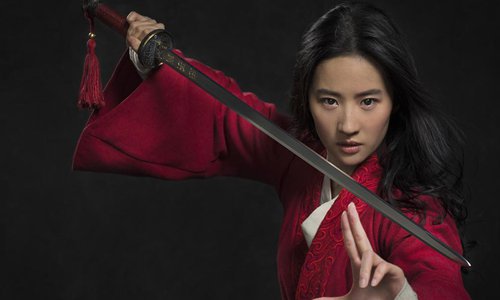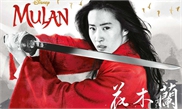ARTS / FILM
Foreign netizens attribute cut ‘Mulan’ character to ‘homophobia’ out of ignorance of Chinese culture

Top and inset: Promotional material for Mulan Bottom: A Fujian tulou in East China's Fujian Province Photos: IC
The inaccessibility of the global fanfic platform Archive of Our Own (AO3) in China (https://www.globaltimes.cn/content/1181382.shtml) has misled some foreign netizens into thinking that Chinese are "homophobic." Those not familiar with Chinese culture have even made a groundless connection, claiming that the removal of the original romantic interest Li Shang in Disney's live-action remake of the animated film Mulan is an attempt to avoid the connotations of Li falling for Hua Mulan while she is disguised as a man in the army.
However, the producer of the new Mulan has explained that it was the #MeToo movement that triggered the Disney company to remove Li. The producer also noted that Mulan still has a love interest in the movie, but instead of being her commanding officer, this role falls to another soldier, Honghui, who is equal to her in rank.
It is actually quite ridiculous to think that Disney would pull the role of Li Shang from the story out of fears that Chinese may find it offensive. In actuality, women masquerading as men, and even getting in relationships due to this, are a fairly routine plot in many ancient Chinese love stories, and Disney's take on Mulan is obviously inspired by these love stories.
During many times in ancient China, women were not allowed to go out alone. Some women who did not want to be confined by this rule would disguise themselves as men for various reasons such as doing business with men, pursuing love and joining the battlefield just like Hua Mulan.
These types of stories appeared in many novels, poems and dramas of Ming Dynasty (1368-1644) and Qing Dynasty (1644-1911).
One of the most famous and representative stories from this time period is Butterfly Lovers, the Chinese version of Romeo and Juliet. The story focuses on Zhu Yingtai, a young woman who dresses up as a man to attend school (Chinese women were discouraged from taking up scholarly pursuits in ancient times), but later fell in love with a scholar named Liang Shanbo. Liang sees her as a good friend until Zhu reveals her real gender and confesses her love for him. However, they both end up dying from heartbreak as they are unable to be together since Zhu's father has arranged a marriage for her. The two end up becoming a pair of butterflies that fly off together.
It is clear that dressing as a different gender has been a very common scenario in Chinese stories.
Additionally, it is silly to think Disney would cut a character out of concerns that Chinese audiences would be offended by gay undertones. Chinese audiences are more accepting of LGBT content than ever before. The boys' love genre, about romantic relationships between young men, is one of the most popular genres among young readers. On TV, shows that feature same-sex couples, such as Modern Family, are freely broadcast. When it comes to film, while some other countries cut a same-sex kiss from Star Wars: The Rise of Skywalker, China keeps that scene untouched.
To accuse China of homophobic behavior only reveals ignorance of Chinese culture.



